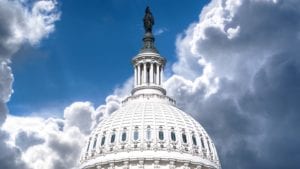“Two-plus weeks have passed since the D.C. Circuit’s panel decision in Halbig v. Burwell and the Fourth Circuit’s opposite decision in King v. Burwell, a substantially identical case.[1] The King plaintiffs have filed their cert petition; and the government has asked for rehearing en banc in the D.C. Circuit; and the initial agitation has subsided. It’s a fine time to highlight a few lessons that, in my estimation, we have already learned. I offer three sets of observations: today, I’ll focus on the interplay between constitutional and administrative law and on the advocacy network that produced Halbig and its companion cases; tomorrow, I’ll analyze the institutional pathologies and ideological derangements that account for the contretemps.
Constitutional and Other Law. To rehearse the wholly obvious, Halbig is the second frontal legal assault on Obamacare. The first (NFIB v. Sebelius) was directed at its “individual mandate,” and its provision that states refusing to participate in the Act’s Medicaid expansion would forfeit all Medicaid funding. These were high-toned constitutional attacks—the former, on the authority of Congress under the commerce and tax powers; the latter, on its spending authority. I don’t mean to dispute the urgency or righteousness of those lawsuits. They had to be brought, and quickly—even if the only point had been to proclaim that they can’t do this to us, at least not without a fight. Beyond that, NFIB served to demonstrate that constitutional arguments over enumerated powers still cut some ice.
The prevailing response to the Court’s narrow upholding of the mandate as a permissible exercise of the taxing power has been disappointment (or worse). At variance with many of my friends and colleagues, I believe that the Supreme Court’s decision actually produced a positive result on the enumerated powers front. Either way, though, even a full-scale win on the mandate question would have done little beyond turning Obamacare into the no-mandate care system that had been advocated by then-candidate Obama—and which the President has since implemented by waiving and postponing the oh-so-essential mandates for individuals and employers.[2] In operational terms, and even for significant constitutional questions, the individual mandate itself has always been a side show.”
Halbig and Obamacare: What We Have Learned (Part I)
You are here:
- Home
- Affordability
- Halbig and Obamacare: What We Have Learned (Part I)





